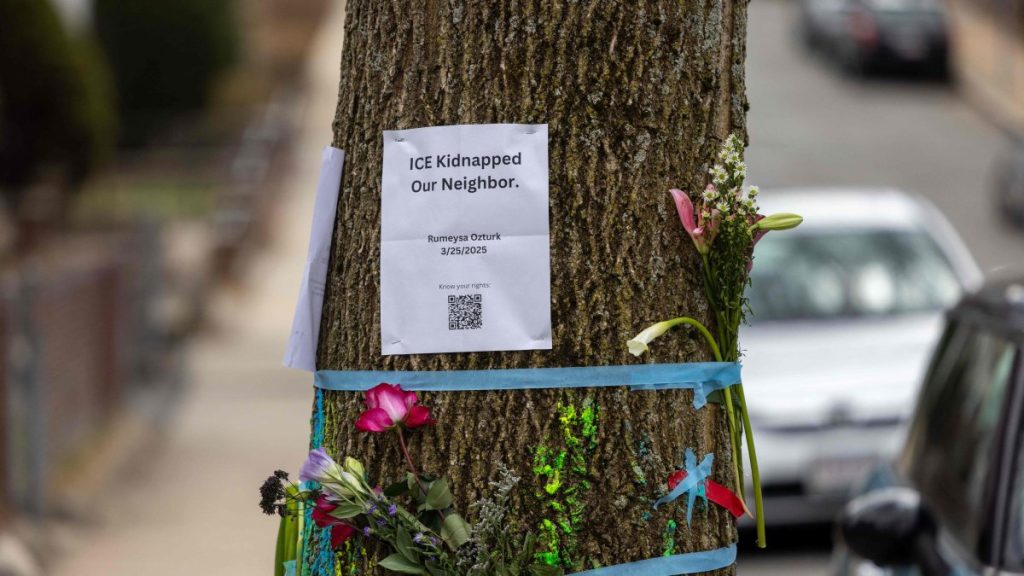Rümeysa Öztürk, a victim of the Trump administration’s policies targeting pro-Palestine activists, will remain in detention after a U.S. federal judge requested additional evidence Monday in the case of the Turkish student. Öztürk was arrested in March by Department of Homeland Security (DHS) agents.
The judge also postponed a decision on her potential release on bail.
U.S. District Judge William K. Sessions III, presiding over the case in Burlington, Vermont, said he must first determine whether he has jurisdiction to rule on Öztürk’s petition before considering her request for release on bail. Öztürk, 30, a Fulbright scholar and Ph.D. student in child and human development at Tufts University in Massachusetts, was taken into custody by masked ICE agents outside her Somerville apartment on March 25. According to court filings, her student visa had been quietly revoked four days prior without advance notice. Her attorneys say she was offered no explanation at the time of arrest.
During a phone conference with lawyers on Monday, Sessions stressed that if the court lacks jurisdiction – as the government argues – then it “has no power, no authority” to rule on the matter. He gave both parties until 5 p.m. Thursday to submit legal briefs addressing jurisdiction and bail and scheduled a follow-up hearing for April 14. Öztürk’s attorney Ramzi Kassem urged the judge to release her immediately so she could resume her studies, arguing that the court has the authority to grant her release and that she poses no risk to the public or of escape. Assistant U.S. Attorney Michael Drescher reiterated that “jurisdiction is absolutely the threshold question” that must be resolved first.
The government contends that the Öztürk case belongs in immigration court and that federal district courts do not have jurisdiction over the issues she raised, including the revocation of her visa and her deportation order.
Öztürk was initially held overnight in Vermont after her arrest and flown to Louisiana the following day. Her friends, attorneys and the Turkish Consulate were unable to locate her for over 24 hours, during which she reportedly suffered an asthma attack, her lawyers said.
A federal judge in Boston, where Öztürk’s legal team filed an emergency petition on the night of her arrest, later ruled that the case should proceed in Vermont, citing that Öztürk was still in that state at the time of filing.
Judge Sessions said Monday that the case presented unusual circumstances and requested that both parties gather and submit additional evidence.
U.S. Secretary of State Marco Rubio previously confirmed that Öztürk’s student F-1 visa had been revoked and defended her detention. Authorities claim she engaged in activities supporting the Palestinian group Hamas without providing any evidence.
A viral video captured the moments of her detention, showing masked DHS agents handcuffing her and forcibly taking away her phone.
Öztürk’s lawyers and supporters argue that she was detained for co-writing an op-ed in The Tufts Daily in March 2024 that criticized the university’s handling of the pro-Palestinian movement.
Öztürk’s detention comes amid the Trump administration’s broader crackdown on pro-Palestinian students and academics, including the detention of Palestinian activist and recent Columbia University graduate Mahmoud Khalil and Georgetown University researcher Badar Khan Suri.


